Does Imran Khan’s arrest, legal troubles spell end of his political innings?
By Syed Zafar Mehdi
Pakistan’s populist cricketer-turned-politician Imran Khan has been sentenced to three years in prison for corruption, plunging the South Asian country into another major political crisis.
In a ruling on Saturday, a court in Islamabad sentenced the former prime minister to three years in jail and disqualified him from political activities for “corrupt practices” related to the "sale" of state gifts.
The 70-year-old leader of the Pakistan Tehreek e Insaf (PTI) was arrested by police from his plush home in Lahore following a court ruling in the Toshakhana case, in which he has been accused of selling gifts received from heads of state worth more than 140 million Pakistani rupees ($490,000).
The sentence could potentially end Khan’s political career as the South Asian country’s law prevents anyone with a criminal record from holding a public office. He also risks losing his party leadership.
Khan and his supporters allege that charges against him are politically motivated as Pakistan Muslim League (PML-N) and Pakistan People’s Party (PPP) prepare for general elections later this year.
“You cannot arrest an idea whose time has come. If you look at the poll surveys, PTI has an approval rating of 70 percent. No party has had such popularity. So this is madness, what is going on,” Khan told Al Jazeera in an interview hours before his arrest on Saturday, putting up defiance.
What are Khan’s legal troubles?
It is the second time the PTI chief has been jailed this year, but his current incarceration in eastern Punjab’s notorious Attock prison is different from his stay in a police guesthouse in Islamabad in May.
Khan's arrest in May on corruption charges sparked a wave of violence-marred protests across the country, which eventually prompted Pakistan’s apex court to order his release, terming his arrest illegal.
The last time, Khan was allowed to have guests in the police guesthouse and hold meetings with his party colleagues.
This time, however, security has been beefed up outside the Attock prison, which mostly houses convicted criminals, amid heavy deployment of police personnel and blockade of roads with barriers.
PTI lawyer Shoaib Shaheen was quoted as saying on Sunday that police refused to allow a legal team from meeting Khan, referring to “plenty of loopholes in the verdict.”
However, on Monday, Khan’s lawyers said they will be allowed to meet him before they move to file an appeal against his conviction. The announcement came after PTI party officials expressed concern over their leader's health and safety under “harsh solitary confinement.”
Babar Awan, a member of his party’s legal team, termed the sentence against the PTI leader “ridiculous”, and claimed that Khan was "not given a fair trial."
Khan faces 150 cases, which have piled up since his ouster as the prime minister on April 10, 2022.
After securing bail from the Islamabad High Court over murder charges in June, Khan took to Twitter and said he has set a new “world record”, beyond his cricketing exploits.
"Having always respected the rule of law, I have been running from pillar to post to ensure that I don't miss a single court hearing of the 150 cases I have been charged with,” he wrote.
"This level of victimization has not only completely discredited the imported govt but it is now obvious that this fascism unleashed on us is because they are petrified of losing the elections to PTI.”
Can Khan still engage in politics?
The arrest has put a big question mark on his ability to contest elections later this year as someone with a criminal record is barred from holding a public office according to the country’s constitution.
A general election is slated to be held in mid-November, but speculation is rife that the election could be delayed as the country’s latest census results mandate the redrawing of constituencies.
The Shahbaz Sharif government on Saturday approved a plan to redraw the country’s constituencies during a council meeting chaired by PM Sharif himself.
Pakistan’s law minister Azam Nazeer Tarar was quoted as saying by the country’s privately-owned Geo TV that the new census could delay polls until early next year.
Earlier, Sharif had announced the plan to dissolve the government by August 9, after which an interim government was supposed to take over until the next election.
Khan has repeatedly claimed that the ruling party is “petrified” of facing him in the polls.
“The reason why I’m suffering is because they know that [in the] elections, we would win hands down,” he said earlier this week. “And because of that, they’re dismantling a democracy.”
According to legal commentators, even If Khan’s appeal against the sentence is upheld, it would only allow Khan to make a comeback after five years, which adds to his woes.
What are the gifts Khan allegedly sold?
Khan has been convicted of abusing his prime ministerial authority to purchase and sell gifts that were received during foreign state visits and were worth more than 140 million Pakistani rupees ($490,000).
The gifts, according to unconfirmed reports, include exquisite watches gifted by a royal family to the Pakistani premier as well as expensive perfumes, diamond jewelry and dinner sets.
As per a list shared by Pakistan’s information ministry, the gifts include seven watches, six of them Rolexes, and the most expensive being a ‘Master Graff limited edition’ worth 85 million Pakistani rupees ($300,000).
In September 2018, Khan paid 20 million in local currency to retain a different Graff wristwatch worth 85 million, a pair of cufflinks worth 5.6 million, a pen worth 1.5 million Pakistani rupees, and a ring worth 8.75 million Pakistani rupees, according to media reports, citing officials.
Khan reportedly kept the gifts in his possession in October 2018 after paying a relatively lesser amount for them. Among items retained by him include a Rolex watch worth 1.5 million Pakistani rupees.
In his defense, Khan says he legally purchased them and did not abuse his power as the premier.
Does Khan’s party face a leadership crisis?
In Khan’s absence, the party is grappling with the question of who can take over the reins, with PTI vice chairman Shah Mehmood Qureshi saying decisions will be taken through “collective wisdom.”
“There is no doubt that no one in the party can replace Imran Khan; party workers are attached to the chairman’s personality and his ideology,” Qureshi told the Dawn newspaper on Sunday.
According to Pakistani media reports, Qureshi will lead the party in Khan's absence with senior leaders including Asad Qaiser, Firdous Shamim Naqvi, Ali Muhammad Khan and Shehryar Afridi assisting him.
However, Qureshi is seen as a “stopgap measure” as many believe he is not fit to replace Khan.
Qureshi, the former Pakistani foreign minister and PTI stalwart, on Sunday urged party workers to take to the streets but cautioned against taking the law into their hands or damaging the property.
“We have to fight for true freedom,” he said. “The PTI will use its right to challenge the decision by knocking on the doors of the higher judiciary.”
How was Khan deposed?
The former cricketer who became prime minister in 2018 was ousted in a no-confidence vote in May last year in a move that Khan and his close aides at the time blamed on the United States.
Pakistan's top election body disqualified him from holding a public office for five years, accusing him of selling gifts he received from foreign dignitaries as the country’s premier.
The populist leader termed the decision a "politically motivated" move to sideline him by his political opponents, most notably the leaders of the PML-N and PPP.
Khan accused the PML-N government led by Prime Minister Shahbaz Sherif of conspiring with the country's powerful military and the powers that be in Washington to oust him.
His ouster triggered massive political rallies across Pakistan organized by his supporters, while the PML-N government also launched a serious crackdown on Khan and his party leaders.
Before his dismissal, in an emotional televised speech, the flamboyant politician blasted Washington for joining hands with his political opponents in a bid to remove him from office.
What makes him so popular?
Khan rose to global stardom after he heroically led Pakistan to its first and only Cricket World Cup triumph in 1992. Four years after the great cricketing feat, he formally joined politics.
In 1996, soon after his foray into politics, Khan established his own political party – Pakistan Tehreek e Insaf (PTI) – as a rival to the two formidable, family-centric political parties – PML-N and PPP.
He made a slow and quiet start to his political innings but finally announced his arrival at a massive public rally in the city of Lahore in 2011.
In the 2013 elections, he gave a tough fight to his political opponents and ended up forming a coalition government in northwestern Khyber Pakhtunkhwa province.
In July 2018 general elections, his party swept the vote and formed government at the center as well as in the provinces of Khyber Pakhtunkhwa and Punjab.
Apart from his cricketing exploits that made him a national hero in Pakistan, Khan is also known for his philanthropy work, running a very popular cancer hospital in Lahore named after his mother.
He has also projected himself as a crusader against corruption and crimes, which won him massive youth following across the country.
IRGC Navy chief: Iran's unity and resolve a barrier against enemy plots
IRGC: EU's terrorist labeling aligns with US interventionism
VIDEO | India hosts Arab foreign ministers amid West Asia crises
VIDEO | No decisive win for Trump with Iran
VIDEO | Press TV's news headlines
VIDEO | Trump says navy near Iran because they ‘have to float someplace’
Trump tells India to buy Venezuelan oil instead of Iranian crude
UAE 'spy sheikh' invested in Trump-linked firm before his inauguration: Report


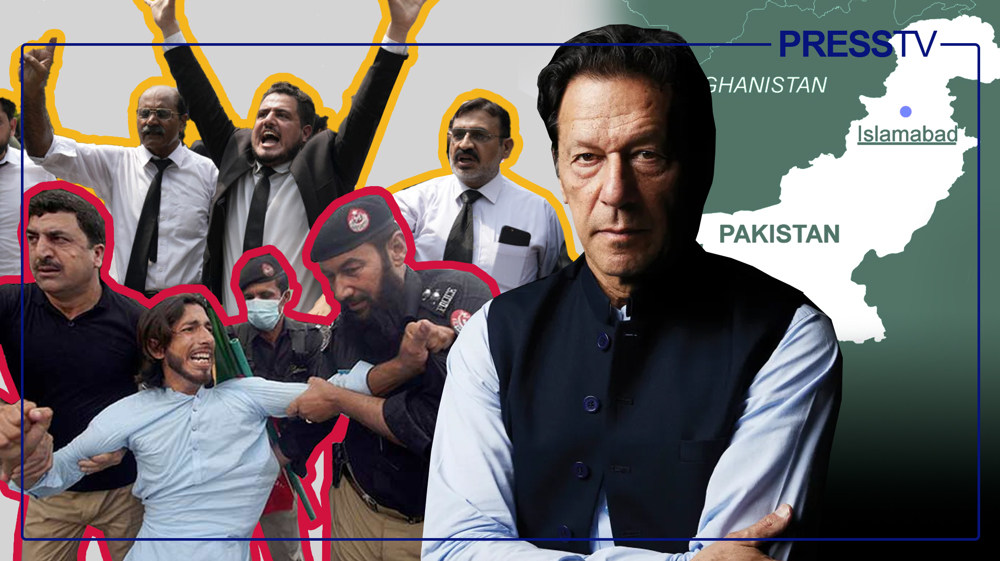
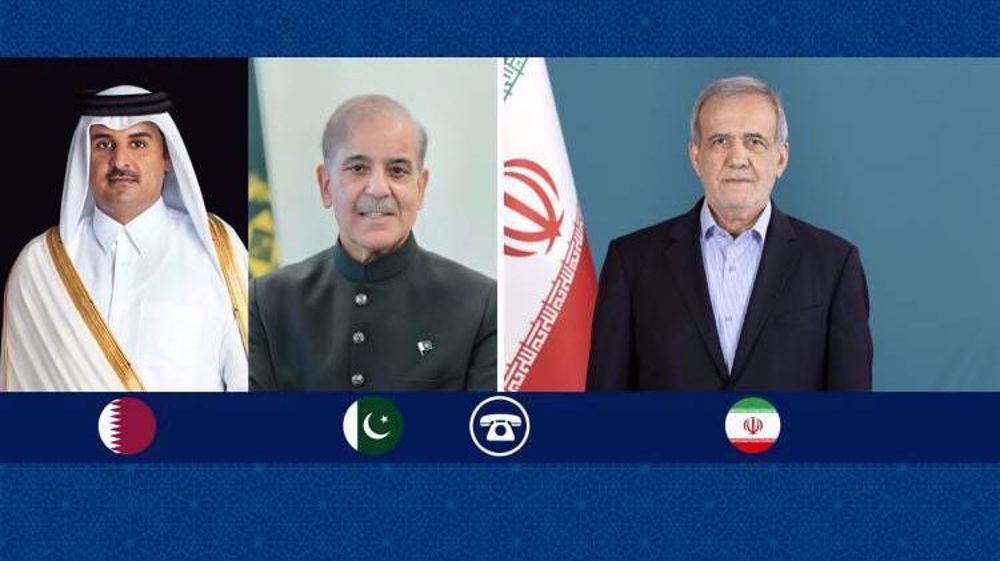
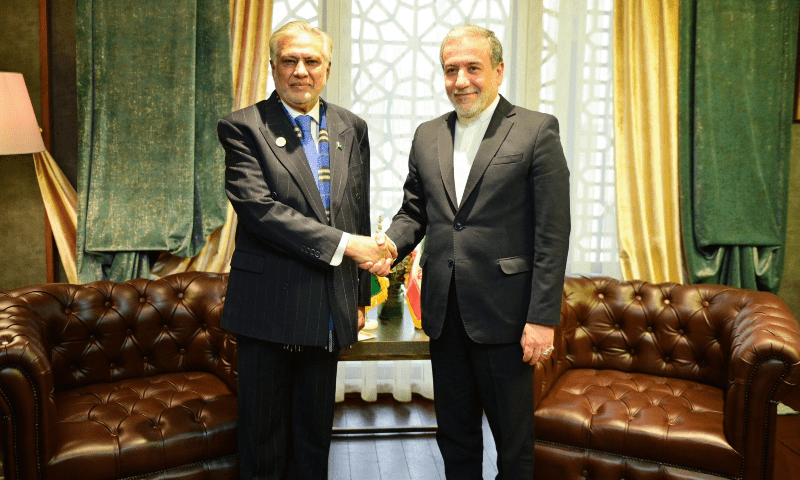
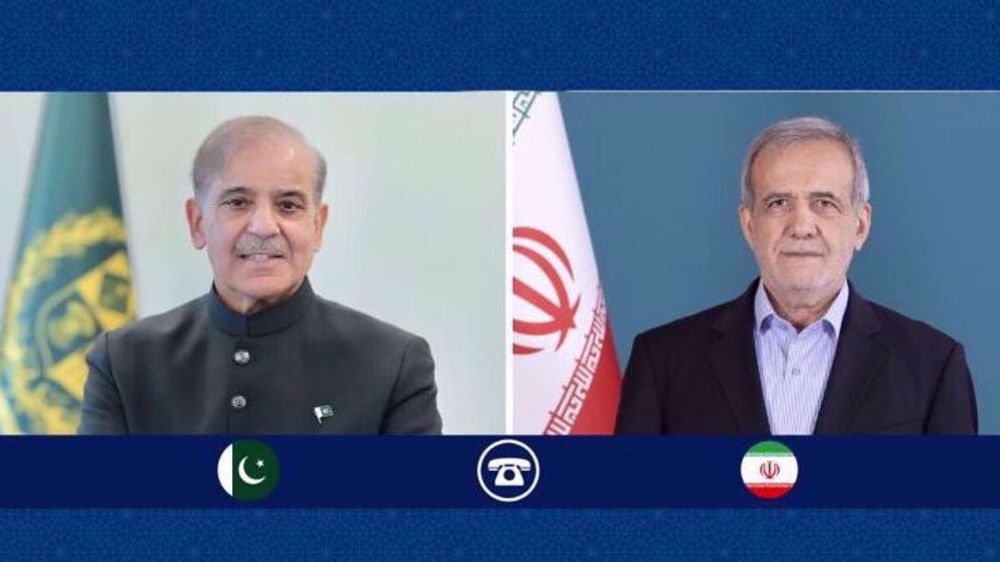



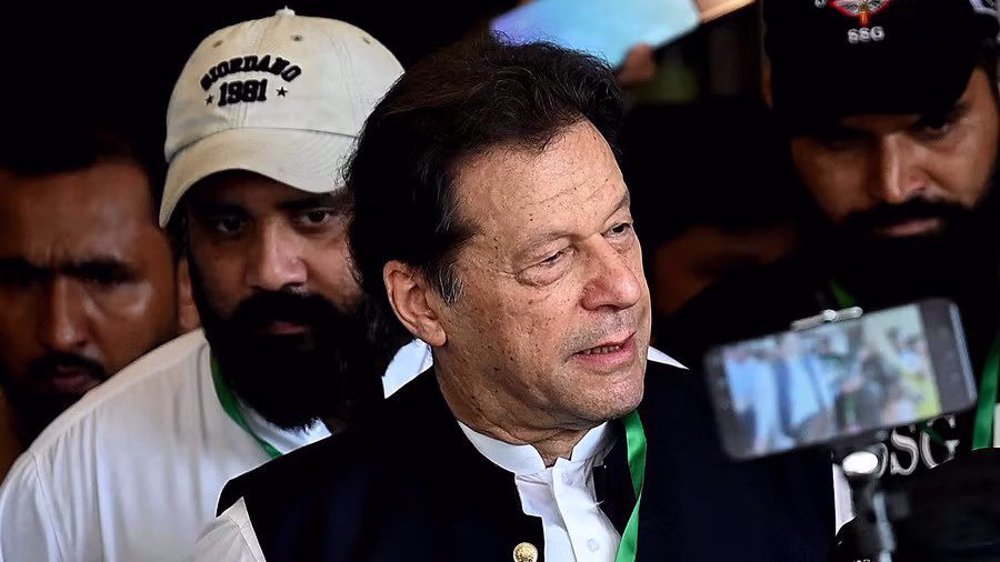
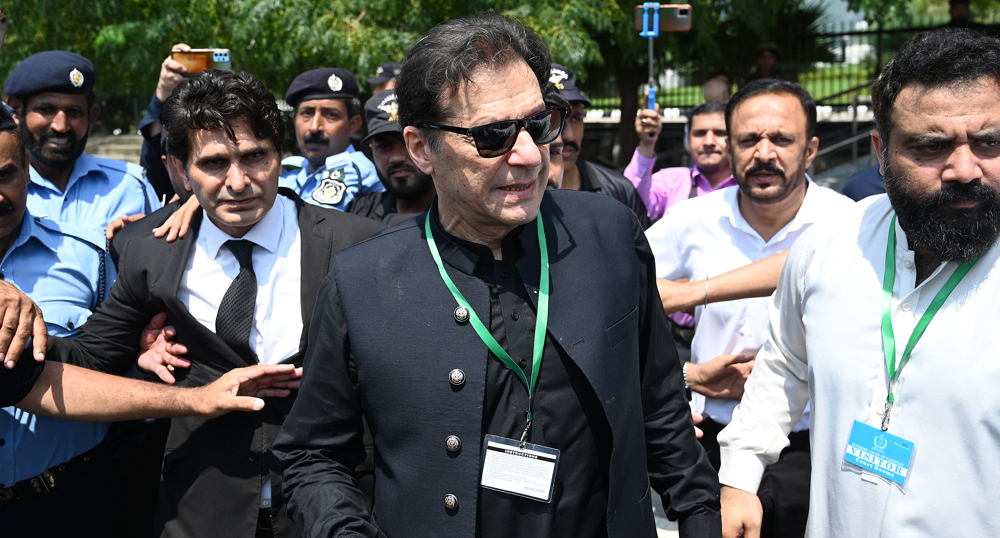
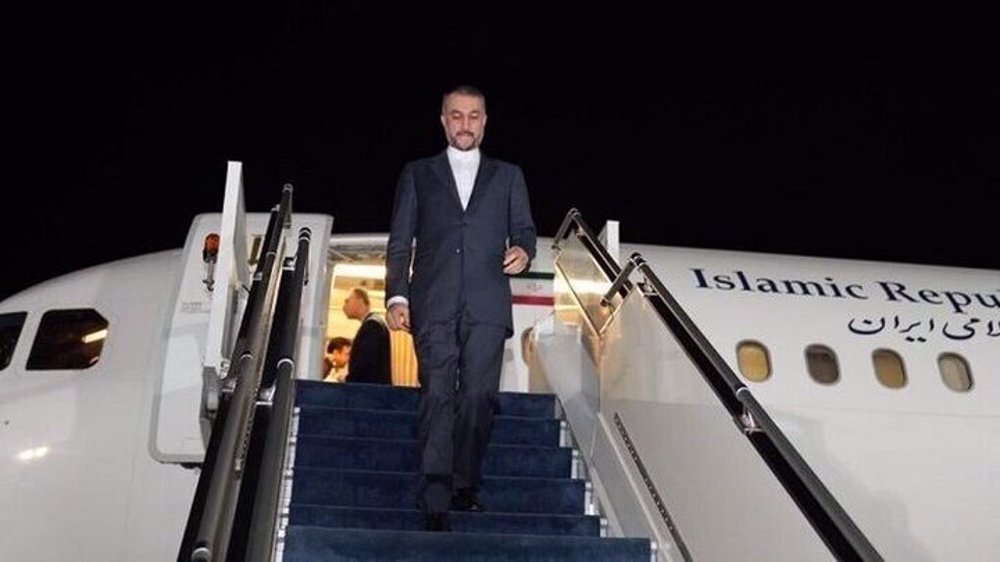
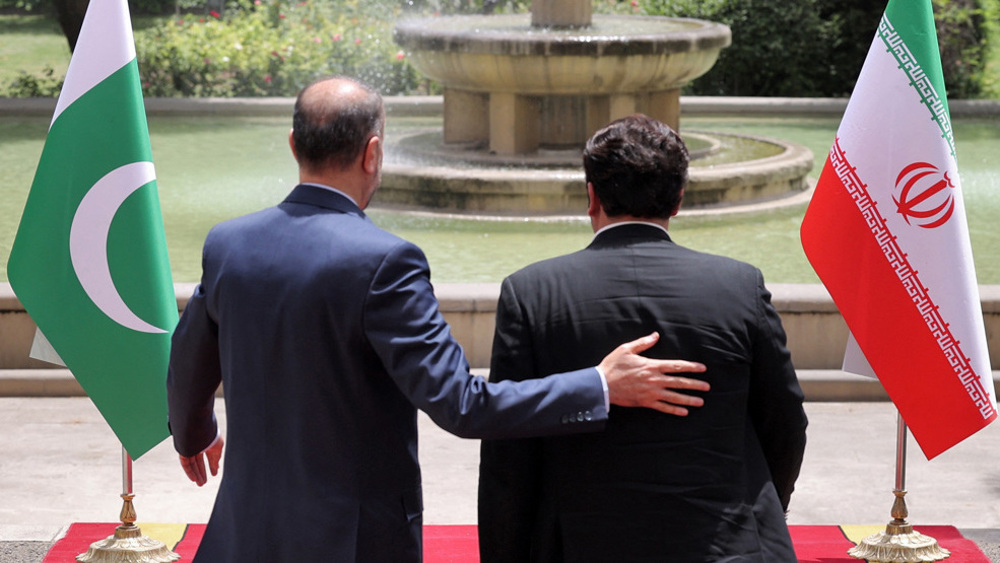
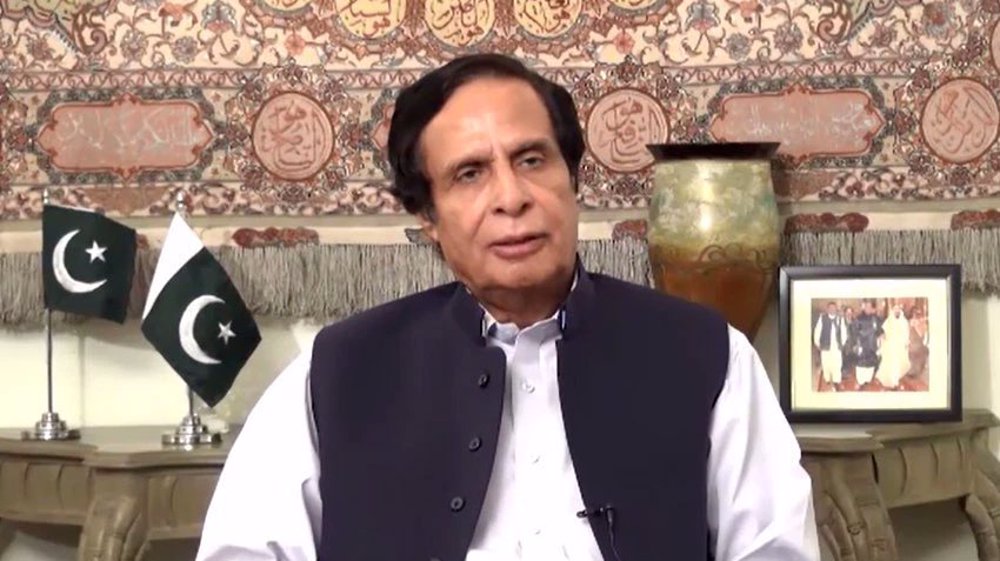

 This makes it easy to access the Press TV website
This makes it easy to access the Press TV website